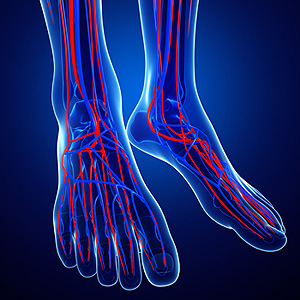

Poor circulation, a medical condition also known as circulatory insufficiency, refers to the inadequate flow of blood through the blood vessels, impairing the distribution of oxygen and nutrients to the body's cells and organs. The feet are often affected, leading to a variety of symptoms, including numbness, tingling, and muscle cramps. Several factors can contribute to poor circulation. Atherosclerosis, the buildup of plaque in arteries, narrows the blood vessels, reducing blood flow. Conditions such as diabetes can damage blood vessels and nerves, further impeding circulation. High blood pressure, obesity, and smoking are well-known risk factors that can harm blood vessels and hinder the circulatory system. In some cases, genetics can play a role, as a family history of circulatory issues may increase one's susceptibility. If your feet are cold for the majority of the day, it is suggested that you schedule an appointment with a podiatrist who can accurately diagnose poor circulation, and offer appropriate treatment methods.
While poor circulation itself isn’t a condition; it is a symptom of another underlying health condition you may have. If you have any concerns with poor circulation in your feet contact Dr. Nooshin Zolfaghari of VIP Foot & Ankle Center. Our doctor will treat your foot and ankle needs.
Poor Circulation in the Feet
Peripheral artery disease (PAD) can potentially lead to poor circulation in the lower extremities. PAD is a condition that causes the blood vessels and arteries to narrow. In a linked condition called atherosclerosis, the arteries stiffen up due to a buildup of plaque in the arteries and blood vessels. These two conditions can cause a decrease in the amount of blood that flows to your extremities, therefore resulting in pain.
Symptoms
Some of the most common symptoms of poor circulation are:
Treatment for poor circulation often depends on the underlying condition that causes it. Methods for treatment may include insulin for diabetes, special exercise programs, surgery for varicose veins, or compression socks for swollen legs.
As always, see a podiatrist as he or she will assist in finding a regimen that suits you. A podiatrist can also prescribe you any needed medication.
If you have any questions, please feel free to contact our office located in Pembroke Pines, FL . We offer the newest diagnostic and treatment technologies for all your foot care needs.